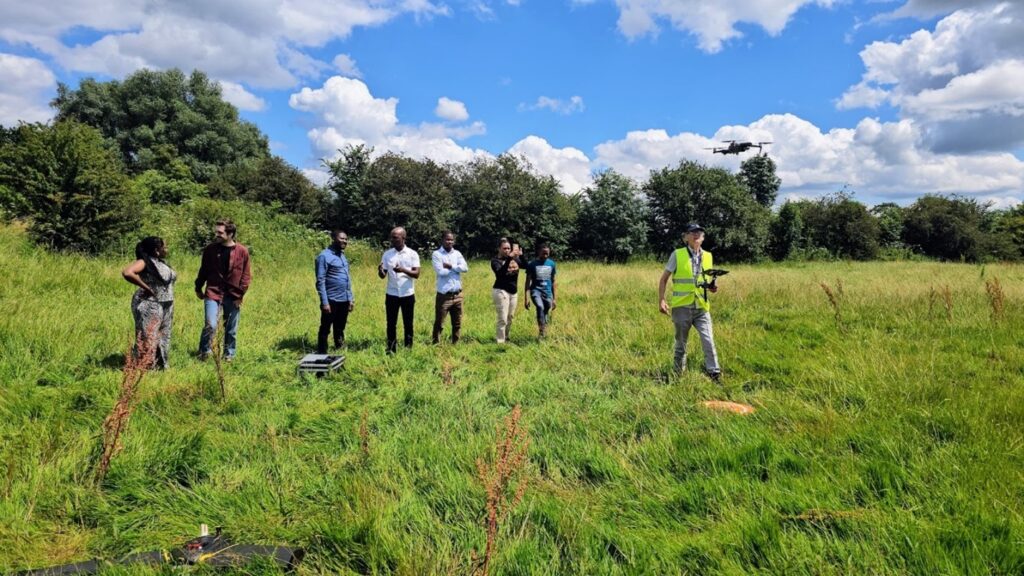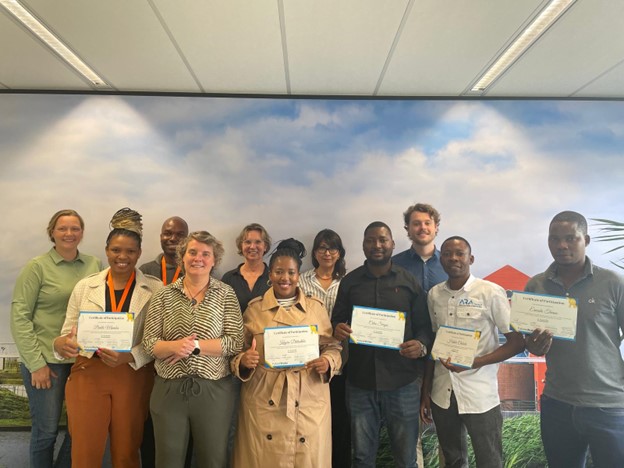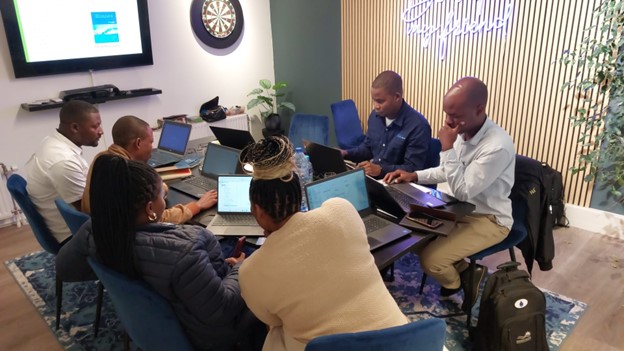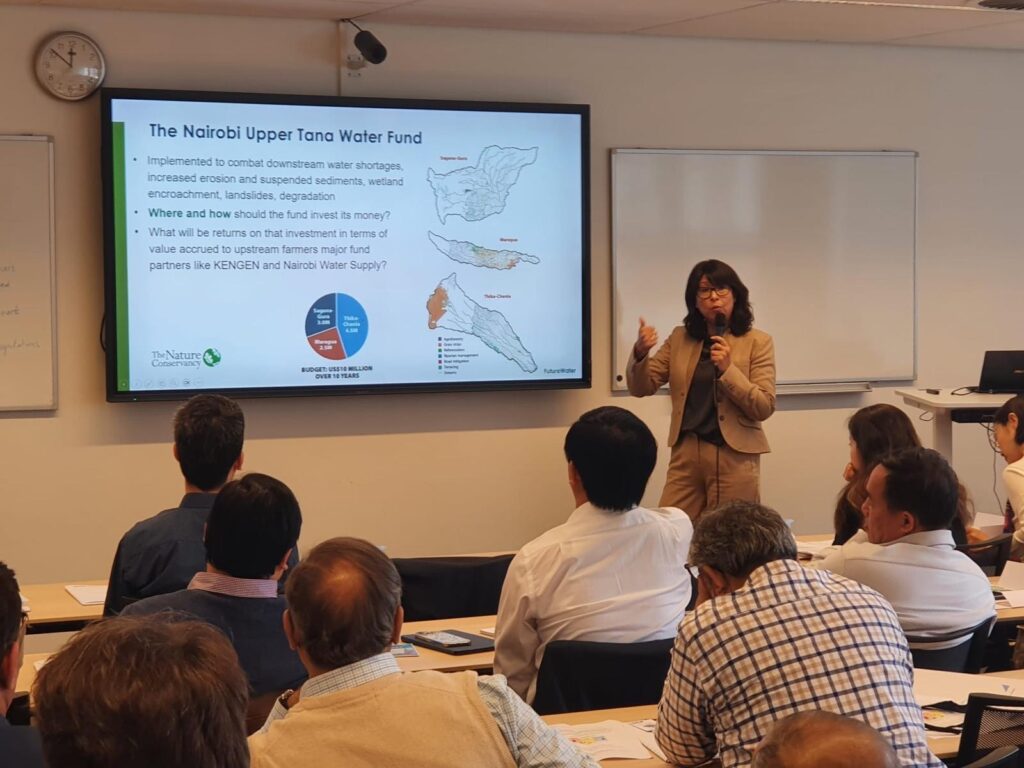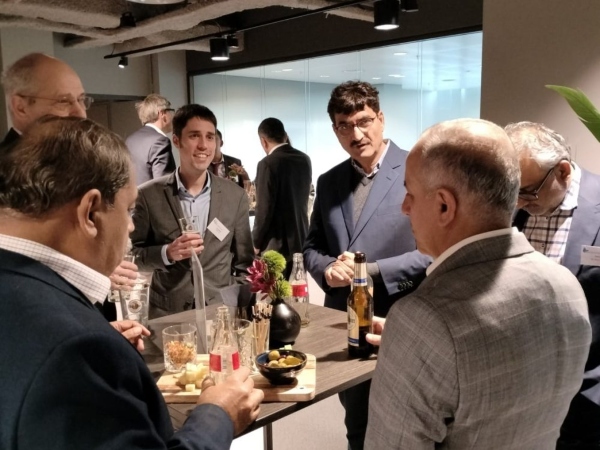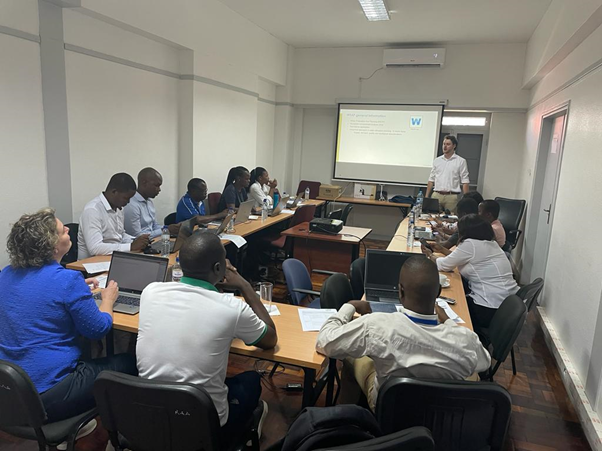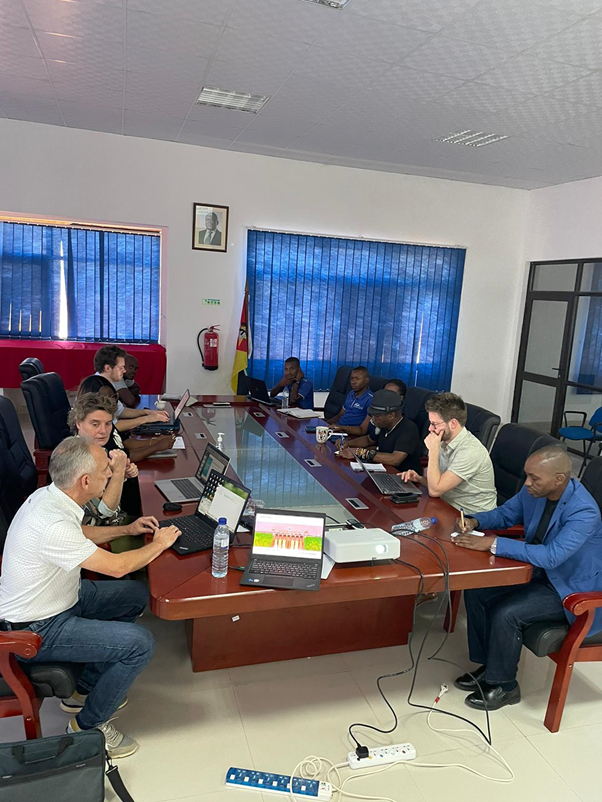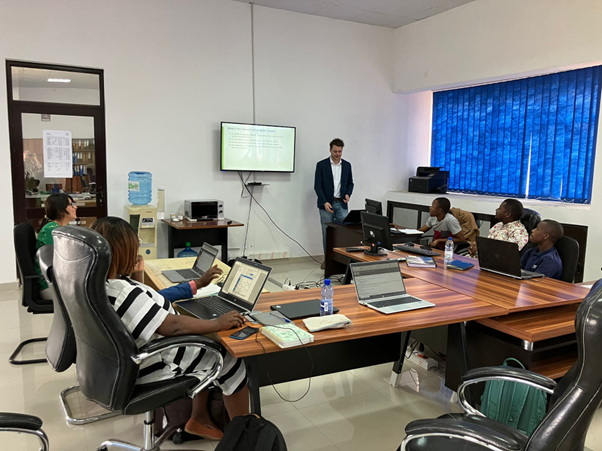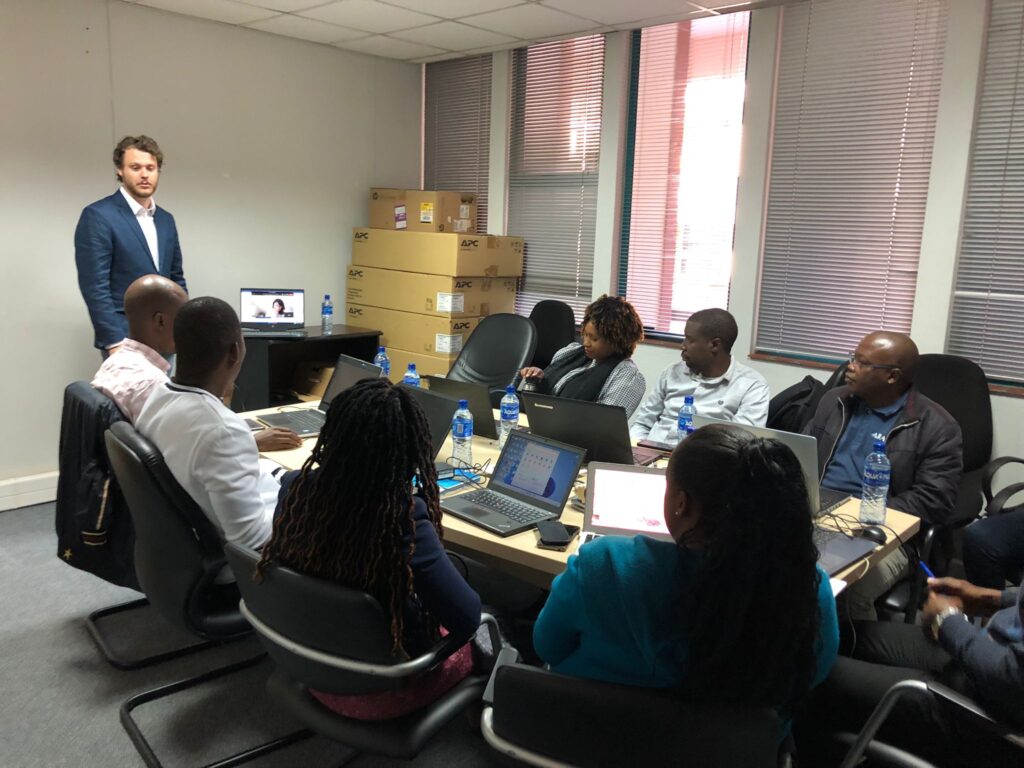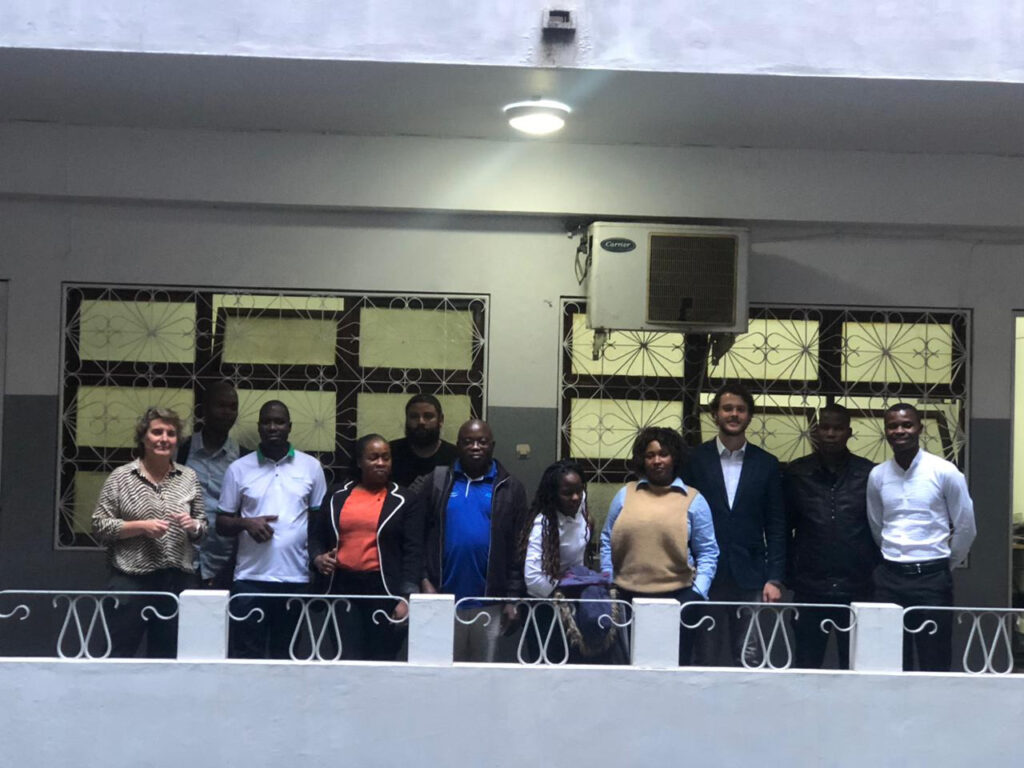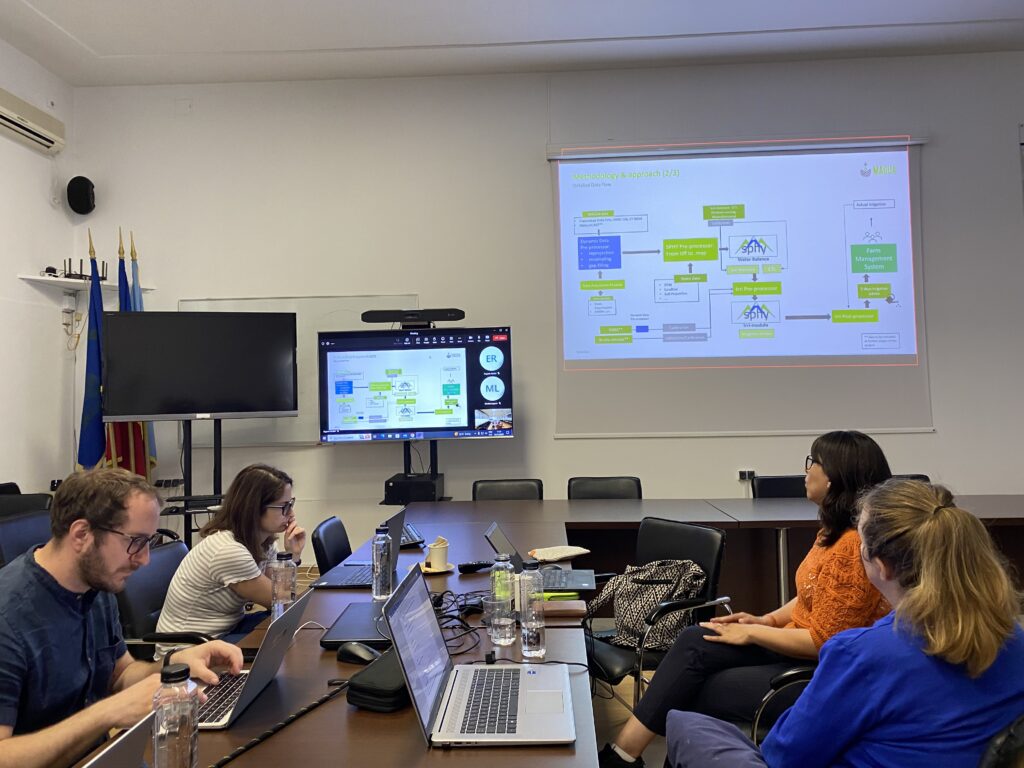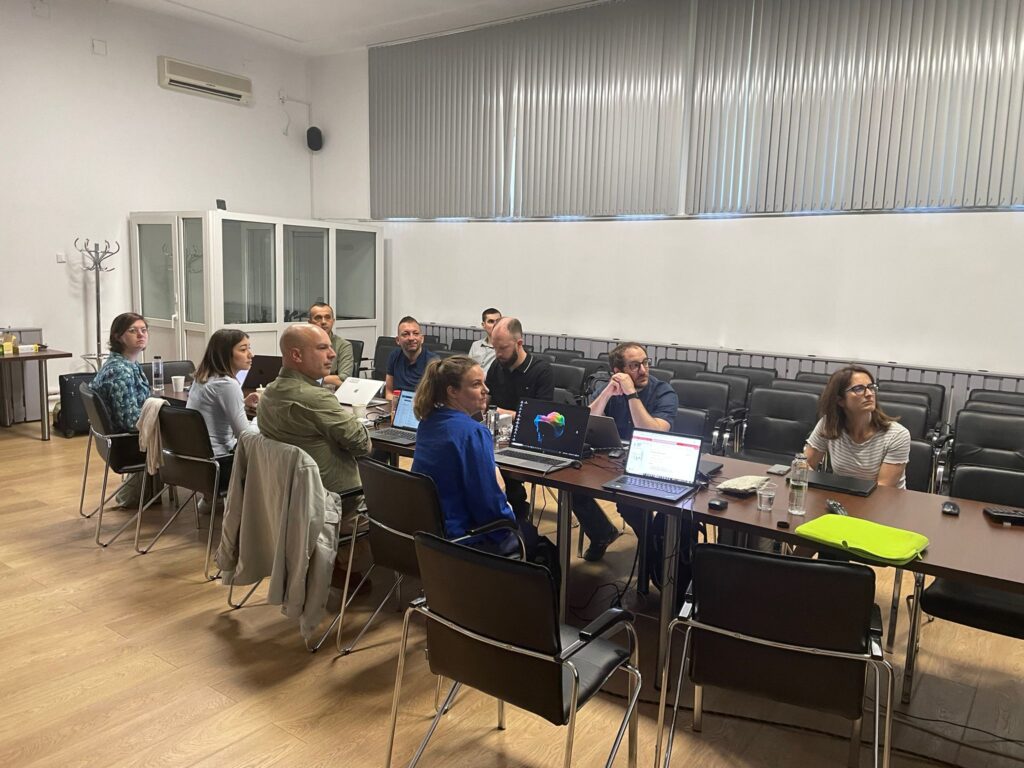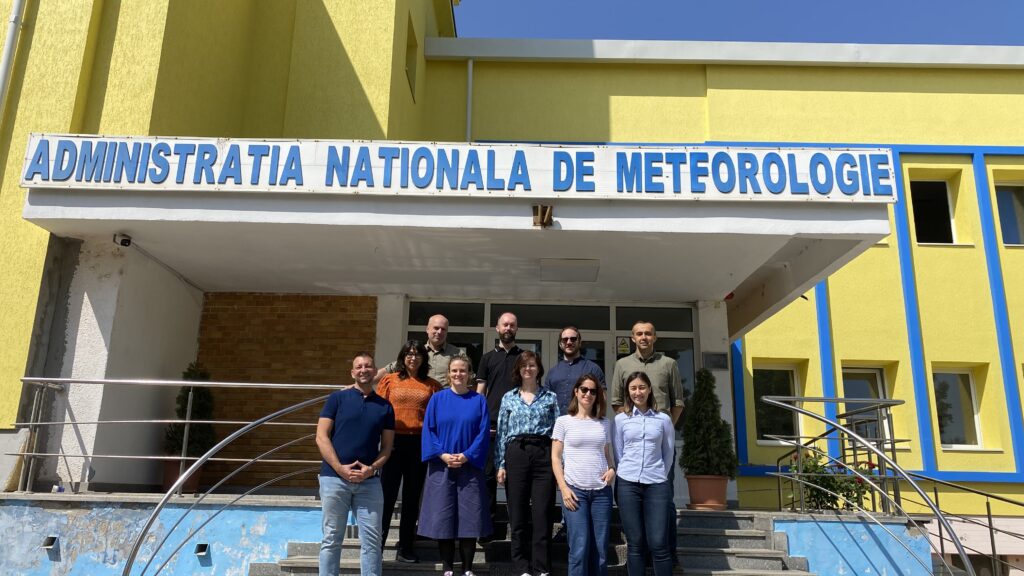FutureWater recently concluded a two-week training program for the Blue Deal partnerships of Mozambique and Eswatini, aimed at enhancing the technical skills of water management professionals from ARA-Sul (Administração Regional de Águas do Sul), ARA-Norte (Administração Regional de Águas do Norte), and the Joint River Basin Authorities (JRBA) from Eswatini. For the training, six water experts travelled to The Netherlands to follow training sessions on a variety of topics related to water management. The collaboration between FutureWater and Blue Deal, funded through the Dutch Water Authorities, was organised to strengthen local capacity in water resource management and transboundary cooperation between the regional institutions.
The training, mostly held at the FutureWater office in Wageningen, focused primarily on applying WEAP (Water Evaluation And Planning), open-source data, tools, and flying sensors for agriculture. Over the past year, multiple WEAP models were co-created by FutureWater together with the local water authorities of Mozambique. For ARA-Norte, a strategic water allocation model for the Monapo River Basin was developed in WEAP. This basin is important for domestic and industrial water supply for Nampula, the third largest city in Mozambique inhabited by close to a million people. The model can be used for long-term planning and decision-making in the basin. For ARA-Sul, two WEAP models were developed. At first, an operational water allocation model was created for the Pequenos Libombos Reservoir, which supplies water to the Maputo City metropolitan and surrounding irrigation schemes. Additionally, a groundwater balance tool was developed for the same area. Both models can be used in assessing requests for water licensing and operational reservoir management and planning. During the training weeks, the water experts were trained in the use of the models and discussions were held on further improvement.
Besides WEAP modelling, the training program featured visits to the Water Boards Rijn & IJssel, and Vallei & Veluwe where firsthand experience was gained in Dutch water management. The training participants visited the control room at the water boards and several hydraulic infrastructure works or projects such as Room for the River. A demonstration day on flying sensors was provided together with our partner HiView providing practical knowledge on the use of drones in mapping floods or agricultural fields. We took the opportunity to hold user validation sessions to further develop the services of the GLObal Water Availability Forecasting Service (GLOW) with Hydrologic. Our collaboration with Blue Deal continues for the coming period.
